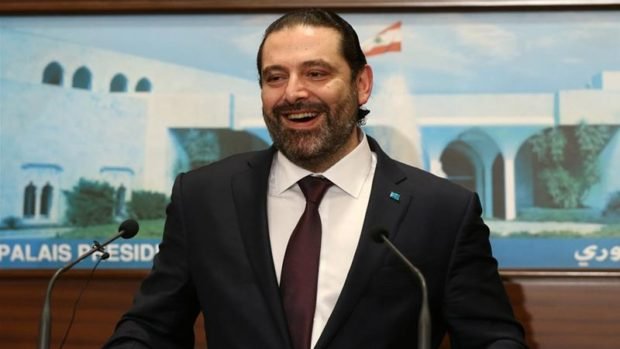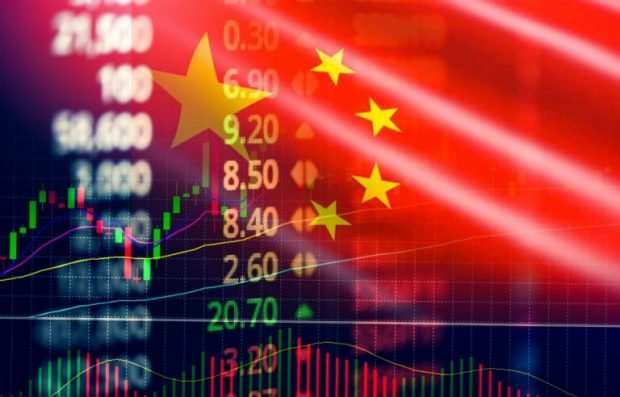Economically Troubled Lebanon Finally Has a New Government

Lebanon held elections for Parliament in May, 2018, where 64 seats are elected to represent the various Christian communities and 64 are elected to represent the Muslim and Druze communities of Lebanon. Under the Lebanese system, the President has to be a Maronite Christian, the Prime Minister has to be a Sunni Muslim, and the Speaker of the Parliament has to be a Shia Muslim. Saad Hariri’s Future Movement Bloc was the largest Sunni block and had to negotiate the formation of a new government.
| Confession | Before Taif | After Taif |
|---|---|---|
| Maronite Catholic | 30 | 34 |
| Eastern Orthodox | 11 | 14 |
| Melkite Catholic | 6 | 8 |
| Armenian Orthodox | 4 | 5 |
| Armenian Catholic | 1 | 1 |
| Protestant | 1 | 1 |
| Other Christian Minorities | 1 | 1 |
| Total Christians | 54 | 64 |
| Sunni | 20 | 27 |
| Shi’ite | 19 | 27 |
| Alawite | 0 | 2 |
| Druze | 6 | 8 |
| Total Muslims + Druze | 45 | 64 |
| Total | 99 | 128 |
Lebanon’s rivaling factions formed a coalition government that will be led by Prime Minister Hariri who has formed a 30 member national unity cabinet, who will have to immediately work to address the economic crisis as the debt is surging, inflation is at a record high, and the credit rating is at junk status.
There was relief across Lebanon that finally a government has been formed as the situation in the country gets worse and worse.
“We first must apologize to the Lebanese people for the delay, especially to the young men and women who’ve been waiting for a glimmer of hope that conditions will be fixed,” Hariri said, referring to the dire state of the economy.
Lebanon has to implement major economic reforms that rein in spending and address the severe corruption and mismanagement.
The BdL circular was stated days after Goldman Sachs published a report warning that the Lebanese government has no choice but to restructure its public debt in order to avoid what Khalil described last month as an “economic crisis turning into a financial crisis.”
Goldman Sachs has worn that the government needs to cancel 65% of the debt for the situation to be sustainable and if Lebanon can’t then the risk of default grows.
With the formation of the Government, the country is on the verge of receiving the 11 billion dollars in money that will be set to help in economic reforms and the building of infrastructure.
At the Cedre Conference in Paris in April 2018, 7 billion dollars was pledged for investment in Lebanon from the private sector, it will serve to help fund the eight-year capital investment programme (CIP) comprised of 250 projects to revamp the country’s collapsing infrastructure.
The Lebanese government is set to borrow money to invest in building up the infrastructure as they are betting on the jobs, growth, tax revenue, and coming more business-friendly reforms to help lower the national debt and bring down inflation.
“It’s true that we are borrowing money, but this money is going towards infrastructure projects that will generate growth and jobs. Coupled with fiscal consolidation, it will allow us to see a decrease of our deficit-to-GDP ratio,” Hazar Caracalla an economic advisor to Prime Minister Saad Hariri.
With the involvement of Hezbollah expanded in the new government policymakers in Washington, Riyadh and Tel Aviv/Jerusalem are alarmed.
H0wever the US State Department has stated their goal is only to stop terror financing to Hezbollah.
“The United States welcomes Lebanon’s announcement of the formation of a new government and congratulates President Aoun and Prime Minister Hariri on this historic occasion. We commend Lebanese leaders for working collectively to overcome the political obstacles that prolonged this process, and we look forward to engaging with the new Lebanese government to strengthen further our bilateral relationship. In this regard, the Secretary looks forward to traveling to Lebanon.
Nevertheless, we are concerned that Hizballah, a U.S.-designated Foreign Terrorist Organization, will continue to occupy ministerial positions and was allowed to name the Minister of Public Health. We call on the new government to ensure the resources and services of these ministries do not provide support to Hizballah.
We look to all parties in the new government to uphold Lebanon’s policy of disassociation from regional conflicts and its international obligations, including those contained in UN Security Council Resolutions (UNSCR) 1559 and 1701. In this regard, we welcome Lebanese leaders’ recent statements committing to abide by UNSCR 1701 and appreciate their recent efforts to avoid escalating tensions along the Blue Line. We hope Lebanon’s new government will take urgent action to implement meaningful measures necessary to improve Lebanon’s difficult economic situation.
The United States reaffirms its strong support for Lebanon’s security, stability, and sovereignty and will continue to stand with the Government of Lebanon and the Lebanese people as they build a stable and prosperous future.”
Saudi Arabia has taken a much harder line against the Iranian proxy group, especially since Crown Prince Mohammed Bin Salman took power in the Kingdom. In late 2017 Lebanon and much of the Middle East was stunned when from Riyadh Prime Minister Saad Hariri resigned as Prime Minister. Immediately upon seeing the comments from Riyadh policymakers in the country and indeed most ordinary in people in Lebanon saw that something was off in the body language, the demeanor, the tone of the Prime Minister. President Michel Aoun refused to accept the resignation of the Prime Minister and was told Hariri had been kidnapped by Saudi Arabia. After the crisis ended Hariri rescinded the resignation and he has continued to govern since.
Israel has had a history of war in Lebanon with wars in 1978, 1982, 1993, 1996, and 2006, and tensions have surged with Hezbollah over a wide range of issues, the situation between Beirut, Hezbollah, and Tel Aviv/Jerusalem has always been a state of war or a fragile peace.
The situation is volatile in the geopolitical sense but also the state of Lebanon domestically is very bad but the new government formation has provided limited hope in bringing some certainty to Lebanon.



